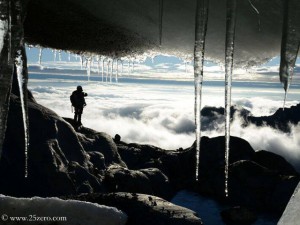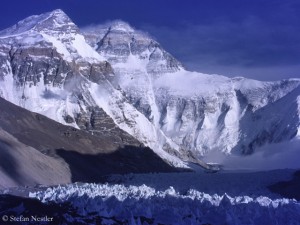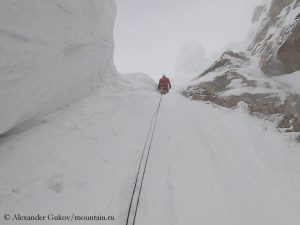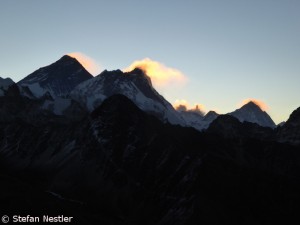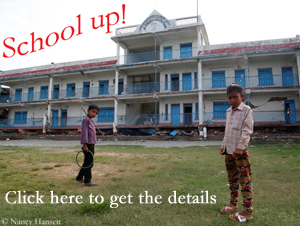If the water towers are empty
It is no more than a coincidence, but a suitable one. This year the “International Mountain Day”, which, since 2002, is observed every year on 11 December, coincides exactly with the final day of the UN Climate Change Conference in Paris – that will end tomorrow hopefully with an agreement on climate protection which is more than just hot air. Mountains are considered as early warning systems for climate change (see the video below). Everyone who is often in the mountains would have to be blind not to perceive the changes. Glaciers are melting almost everywhere at record speed. For instance, more than two dozen mountains in Asia, Africa and South America, which are located near the equator and were once glaciated, will probably be completely ice-free within the next two to three decades. Permafrost in the mountains is in retreat too: soils that were permanently frozen before are thawing. Increased rockfall, more frequent landslides or mudslides are the result – not only in the Himalayas.
More than just environmental problems
“Saving our Himalayas means saving ourselves and our future generations”, said Ang Tshering Sherpa, president of the Nepal Mountaineering Association (NMA) when he visited the climate conference in Paris these days. “The Himalayas are water towers for three billion people in Asia. If these water towers for almost half the world’s population are empty, it will not only create environmental problems but a humanitarian and political crisis.”
DAV calls for new ideas in tourism
On occasion of the “International Mountain Day”, the German Alpine Club (DAV) pointed to the impacts of climate change for the Alps. Even with a successful conclusion of the summit in Paris these consequences could be “possibly mitigated but not stopped”. In addition to melting glaciers and less permafrost, more extreme weather events and lack of snow are expected, the DAV stated. “We need new ideas in tourism”, said DAV Vice President Rudolf Erlacher. “Unfortunately, in many places the imagination is only sufficient to construct snow-making equipment.” The resorts had to make their offerings more sustainable and diverse, said Erlacher: “The Alps offer unique winter experience also off-piste.”
Update 11.12.: Now the two dates don’t coincide at all. The UN conference in Paris has been extended until Saturday. That does not sound like a good omen.



